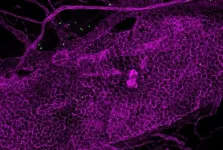(Press-News.org) December 4, 2023 San Francisco, CA: In a detailed study, Diet’s Role in Modifying Risk of Alzheimer’s Disease: History and Present Understanding published in the Journal of Alzheimer’s Disease, we can finally see which diets are helpful in reducing the risk of developing Alzheimer’s disease. The role of diet in modifying the risk of Alzheimer’s disease is discussed in detail. Diets that are more plant based, like the Mediterranean diet and traditional diets in China, Japan, and India, are shown to reduce risk, especially when compared to the Western diet.
Alzheimer’s disease rates rise in these countries as they make the nutrition transition to the Western diet. This study identifies dementia risk factors including higher consumption of saturated fats, meat, especially red meat such as hamburgers and barbeque as well as processed meats such as hot dogs, and ultra processed foods high in sugar and refined grains.
This review also lets us know why certain foods increase or reduce risk of Alzheimer’s disease. For example, meat raised risk of dementia the most by increasing risk factors such as inflammation, insulin resistance, oxidative stress, saturated fat, advanced glycation end products, and trimethylamine N-oxide. This study also outlines several foods that are protective against Alzheimer’s disease, such as green leafy vegetables, colorful fruits and vegetables, legumes (like beans), nuts, omega-3 fatty acids, and whole grains.
Ultra processed foods can increase the risk of obesity and diabetes, themselves risk factors for Alzheimer’s disease. Ultra processed foods often lack the very ingredients found in whole plant foods that keep dementia away, such as anti-inflammatory components and antioxidants.
Poverty is an important driver of Alzheimer’s disease in the US since ultra processed foods and meat are cheaper sources of energy than fruits, vegetables, whole grains, and other more nutritious foods, thus promoting obesity.
The paper also suggests that Alzheimer’s disease rates in the US are projected to increase by 50% from 2018 levels by 2038. This calculation is based on comparing trends of obesity in the US with Alzheimer’s disease trends. This comparison shows a 20-year lag between obesity rates and Alzheimer’s disease rates. This estimate is very close to the estimate published by the Alzheimer’s Association in 2018, an estimate of a 56% increase. Our estimate suggests that the rising trend of obesity, due to consumption of meat and ultra processed foods, is the force driving dementia. Although our personal risk of Alzheimer’s disease can be reduced with diet, it is expected that those who continue to eat the Western diet will continue to have a higher risk.
“Grant and Blake comprehensively review and synthesize the role of dietary factors in Alzheimer’s disease. Evidence from diverse perspectives support that a diet that emphasizes fruits, vegetables, legumes, nuts, whole grains, and…de-emphasizes meat, especially red meat, saturated fats, and ultra-processed foods is associated with lower risk of Alzheimer’s disease. Physical inactivity and obesity also contribute to higher risk. In addition, the dietary and lifestyle patterns associated with higher risk of Alzheimer’s disease are known to affect the constellation of mechanisms believed to increase risk, including inflammation, insulin resistance and oxidative stress, among others. Grant and Blake make a strong case that, while further research is needed to better understand the mechanisms, diet and lifestyle factors linked to diabetes, cardiovascular disease and some cancers are likely to influence risk of Alzheimer’s disease.”
Edward Giovannucci, MD, ScD, Professor of Nutrition and Epidemiology, Harvard University.
“Grant and Blake provide a comprehensive review on the dietary and other factors that affect the risk of Alzheimer's disease (AD). Apart from the particular type of diet they demonstrate that the consumption of red meat, insulin resistance, obesity, reactive oxygen species, and oxidative stress, phytochemicals and homocysteine amongst other factors interact with neuroinflammation and play a major role in the aetiology of AD. This treatise provides an excellent overview of modifiable risk factors for AD.”
Paul Marik, MD, Chairman and Co-Founder, FLCCC (Front Line COVID-19 Critical Care Alliance).
END
Diet has a major impact on risk of Alzheimer’s disease
2023-12-04
ELSE PRESS RELEASES FROM THIS DATE:
Study shows how ethical brands fare in a recession
2023-12-04
Peer reviewed - observational study - people
A new study from the University of East Anglia reveals why some ‘eco goods’ may fare better than others as a UK recession looms.
A new study, published today, shows that when money gets tight, people are more likely to keep up more expensive ethical purchases like buying fair trade products.
The study is one of the first to look at ethical purchases using actual market data from a major UK supermarket chain.
Lead researcher Dr Jibonayan Raychaudhuri, from UEA’s School of Economics, said: “As a possible UK recession looms closer, we wanted to better understand how people’s spending ...
New technique efficiently offers insight into gene regulation
2023-12-04
Researchers from the group of Jop Kind developed a new technique called MAbID. This allows them to simultaneously study different mechanisms of gene regulation, which plays a major role in development and disease. MAbID offers new insights into how these mechanisms work together or against each other. The results were published in Nature Methods on the 4th of December.
DNA is the most important carrier of genetic information. Each cell contains approximately two meters of DNA. To ensure that all this genetic material fits into the small cell nucleus, it must be tightly packed. The DNA is therefore wrapped around a special type of protein, a histone. The ...
U of M Medical School study finds visions of nonphysical world are common among cognitively healthy Ojibwe individuals
2023-12-04
MINNEAPOLIS/ST. PAUL (12/04/2023) — Visual hallucinations are common among people with Lewy body dementia and other types of dementia. Identifying visual hallucinations is an important component of a wide variety of medical and psychiatric diagnoses and treatments, but without cultural context, some patients’ symptoms can be misinterpreted or misdiagnosed.
In existing medical literature, there is almost no information regarding normal spiritual experiences in American Indian participants in the context of a neurocognitive evaluation. University of Minnesota Medical School researchers sought to understand how Ojibwe culture and spirituality affect a doctor’s assessment ...
Consistency key to corporate expressions of racial solidarity
2023-12-04
ITHACA, N.Y. – Why do some corporate expressions of solidarity with marginalized groups register as genuine, while others seem performative or even backfire?
An analysis of statements by Fortune 500 companies following the 2020 police killing of George Floyd finds that costly actions, such as donating money to social justice groups, aren’t enough to convey allyship to Black Americans. Companies must also demonstrate a consistent, long-term commitment to diversity and racial equity, according to research co-authored by James T. Carter, assistant ...
How mountains affect El Niño-induced winter precipitation
2023-12-04
COLUMBUS, Ohio – A consideration of how mountains influence El Niño and La Niña-induced precipitation change in western North America may be the ticket to more informed water conservation planning along the Colorado River, new research suggests.
The study, coinciding with a recent shift from a strong La Niña to a strong El Niño, brings a degree of precision to efforts to make more accurate winter precipitation predictions in the intermountain West by comparing 150 years of rain and snow data with historic El Niño-Southern Oscillation patterns.
Overall, the analysis shows ...
ECHO research examines nutrition data's value from pregnancy to adolescence in understanding child health
2023-12-04
Collaborative ECHO research led by Megan Bragg, PhD, RD and Kristen Lyall, ScD of the A.J. Drexel Autism Institute highlights the opportunity for researchers to access the large amount of diet information already collected from the ECHO Cohort. This research, titled “Opportunities for examining child health impacts of early-life nutrition in the ECHO Program: Maternal and child dietary intake data from pregnancy to adolescence”, is published in Current Developments in Nutrition.
This study aimed to describe dietary intake data available in the ...
Training the immune system to prevent cancer – NextGen researchers discover paradigm-shifting approach
2023-12-04
As one of the most insidious diseases in the world, cancer has few treatments that work to eradicate it completely. Now, a new ground-breaking approach pioneered by two researchers working at the University of Missouri’s Roy Blunt NextGen Precision Health building shows promising results in preventing lung cancer caused by a carcinogen in cigarettes — a discovery that immunologists Haval Shirwan and Esma Yolcu rank among the most significant of their careers.
In the new study, Shirwan and Yolcu designed a molecule — known as an immune checkpoint stimulator (SA-4-1BBL) ...
Snail-inspired robot could scoop ocean microplastics
2023-12-04
ITHACA, N.Y. – Inspired by a small and slow snail, scientists have developed a robot protype that may one day scoop up microplastics from the surfaces of oceans, seas and lakes.
The robot’s design is based on the Hawaiian apple snail (Pomacea canaliculate), a common aquarium snail that uses the undulating motion of its foot to drive water surface flow and suck in floating food particles.
Currently, plastic collection devices mostly rely on drag nets or conveyor belts to gather and remove larger plastic debris from water, but they lack the fine scale required for retrieving microplastics. These tiny particles of plastic can be ingested ...
Georgia State professor granted $5 million to identify and characterize objects in space
2023-12-04
ATLANTA — Georgia State Professor of Physics & Astronomy Stuart Jefferies has been awarded a $5 million, multi-institutional grant by the U.S. Air Force to develop techniques to detect, map and image faint objects in space.
The work could have far-reaching impacts, including strengthening national security in an increasingly congested space domain. The work will also advance the next generation of exceptionally large telescopes and improve the capabilities of astronomers studying the universe by providing images that are significantly sharper than those from existing telescopes.
“Detecting objects in the space region between where ...
Immune protein may induce dementia unrelated to high blood pressure
2023-12-04
Researchers at Weill Cornell Medicine have found that controlling high blood pressure may not be enough to prevent associated cognitive declines. The findings point to an immune protein called cytokine IL-17 as a culprit for inducing dementia and suggest new approaches to prevent damage to brain cells.
The study, published on Dec. 4 in Nature Neuroscience, uncovered a new mechanism involving increased levels of IL-17 in the brain which suppressed blood flow to the brain and induced cognitive impairment in a preclinical model of salt-sensitive high blood pressure.
“An ...






